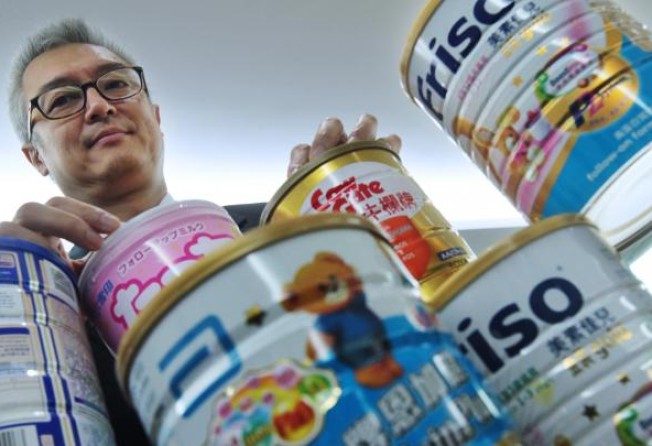Formula milk producers' association defends adverts

I am writing on behalf of the Hong Kong Infant and Young Child Nutrition Association in response to letters by Caroline Carson ("Code aims to curb formula producers' outrageous claims", November 28) and Maggie Holmes ("Health benefits of breast milk are obvious", December 4), in order to clarify some misconceptions.
We would like to stress that the association has always supported the idea that breast milk is the best food for infants and that quality formula is the only safe alternative to breast milk, a statement supported by the World Health Organisation.
Both Ms Carson and Ms Holmes fail to acknowledge the main reasons mothers do not breastfeed.
According to a survey by the University of Hong Kong's Public Opinion Programme this February, as well as studies in 2000 and 2010 conducted in several Hong Kong hospitals, the major factors for not breastfeeding include inadequate breast milk supply, returning to work, fatigue or health problems and inadequate breastfeeding facilities.
Marketing activities by infant milk formula manufacturers are not mentioned.
We would also like to draw attention to the fact that there has been no ruling from the Office of the Communications Authority against claims in our advertising or against the promotional activities of formula manufacturers for "providing wrong information to the public" in the past five years.
The association supports the WHO recommendation that exclusive breastfeeding should be encouraged for the first six months of life.
And in line with the practices in other developed countries such as New Zealand, Singapore and nations in the European Union, we believe that marketing of breast milk substitutes for infants up to six months of age should be governed by legislation in Hong Kong - but there is no need to extend this to children up to three years old.
The proposed code would ban manufacturers entirely from providing information on breastfeeding or formula feeding, or any information on formulas, for children up to three years old.
Thus, once a child starts weaning, there would be a complete absence of information on options for follow-on formulas and food, which include some of the best supplemental nutritional choices for children of that age group.
Not only would this run contrary to Hong Kong's free-market economy, it would also limit the fundamental right of consumers to the free access of information.
Clarence Chung, president of the Hong Kong Infant and Young Child Nutrition Association